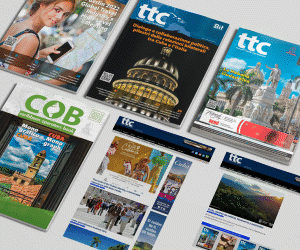By Frank Martin
The Caribbean Community Caricom has reaffirmed a path that seems the only possible way to boost the tourism industry in American continent at a time when it needs them: an strong alliance with Latin America.
The concept was reiterated by the CARICOM Deputy Secretary General, Dr. Armstrong Alexis, who called this goal a priority.
Mister Alexis said at the start of a new cycle of the Latin America and the Caribbean Program (LACRP), a subgroup of the Organization for Economic Co-operation and Development (OECD), that the entity he chairs “will prioritize interventions in Disaster Risk Reduction , compensation for losses and damages, adaptation, food security, management and conservation of the region’s fishery resources”.
Regional specialists consulted by TTC “welcomed” such an initiative and considered it to be a on more element of the “fast track” for this part of the world to leave behind the consequences of the Covid-19 pandemic.
The LACRP program focuses on productivity, social inclusion, governance and sustainable development, explained CARICOM.
Such purposes will be at the top of its development agenda until 2030
“The Secretariat of the Caribbean Community (CCS), backed by its 15 member states, will take every opportunity during formal negotiations and meetings of great political relevance to defend our call for climate justice,” added the Deputy General of CARICOM.
The Caribbean entity has included among its plans an issue that is not only convenient for the immediate future of tourism but also for the regional populations.
This has been the work of the CARICOM Working Group on Agriculture, whose goal is to reduce the region’s food import bill by 25% by 2025.
The initiative, announced by the Caribbean press, seeks to “rebalance trade and save the region more than US$2 billion a year.
Another decision by the CARICOM leadership is “to assign primary responsibility for industrial policy to the President of Suriname, as the region pursues regional and national industrial policies guided by principles of green growth and low-carbon development strategies.
The CARICOM Deputy Secretary General indicated that the 2022-2025 period will focus on improving governance mechanisms that will lay the groundwork for the Community to maximize economies of scale and promote the CARICOM Single Market and Economy (CSME) as the main pathway to achieving the CARICOM agenda. regional development.
This entity of great importance for the Caribbean announced that it remains “committed to helping Haiti with its current challenges.”
In such an aid framework, the members of CARICOM decided to “deploy a team to determine the best way to support democratic governance, peace, security and social development in Haiti.
In global terms, the very active group on various issues of life in the Caribbean said that “it will strengthen social inclusion by focusing on the development of human resources.”
It will also continue to encourage youth development and gender equity, health sector development, culture and community development against crime and for safety.
CARICOM members are Antigua and Barbuda, Bahamas, Barbados, Belize, Dominica, Grenada, Guyana, Haiti, Jamaica, Montserrat -a British Overseas Territory in the Leeward Islands-, Saint Kitts and Nevis, Saint Lucia, Saint Vincent and the Grenadines, Suriname, and Trinidad and Tobago.
As for Cuba, last December the Heads of State and Government of the Caribbean Community (CARICOM) and the Republic of Cuba held the VII CARICOM-Cuba Summit by videoconference in commemoration of the 48th anniversary of the bilateral diplomatic relations.

MORE NEWS











